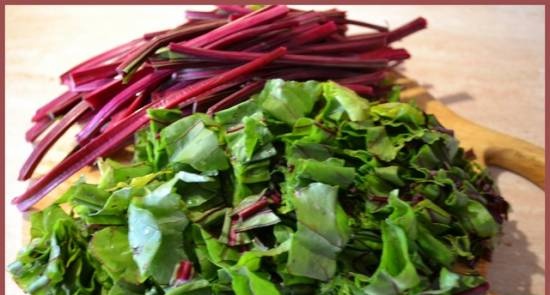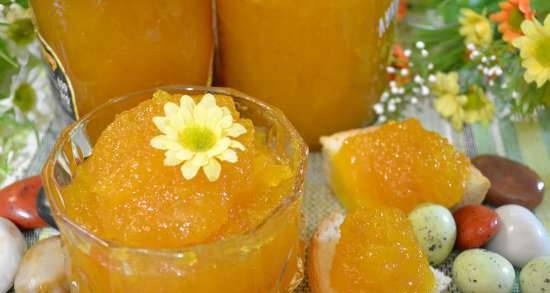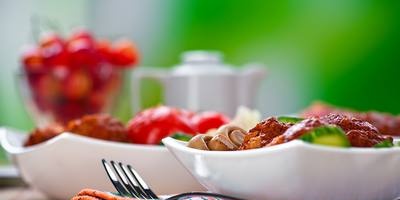|
 Proper storage is an indispensable condition for preserving the nutritional value of products and their quality. Proper storage is an indispensable condition for preserving the nutritional value of products and their quality.
Milk should be protected even from short-term exposure to sunlight, as they cause the breakdown of vitamin B2; after 3 hours of exposure to the sun, the loss of this vitamin reaches 20-30%. Under the influence of light, milk fat becomes rancid and the vitamin A and carotene contained in it are oxidized. Prolonged exposure to the sun causes an increase in the temperature of the product, which contributes to the rapid development of various microorganisms, and this, in turn, causes a very unpleasant taste and smell of milk (putrid). Storage space is also important. Since milk quickly absorbs foreign odors, such as musty, fish, spices, it must be stored in a cool, dark place without strong and unpleasant odors (in the refrigerator, pantry). Milk intended for fermentation must also be protected from sunlight and strong odors.
Yellow and processed cheeses contain a lot of fat, which quickly goes rancid when exposed to light and at room temperature. Therefore, it is best to store them in the refrigerator or cold dark closet, wrapped in paper or foil.
Both animal and vegetable fats go rancid easily under the influence of sunlight, moisture and high temperatures. They should be stored in a refrigerator or in a cool, dark place. Melted lard, fat, ghee are poured into ceramic, glass or enamel dishes (it is important that the enamel is not damaged), covered with waxed paper or foil so that it adheres tightly to the surface of the fat, then cover the dishes with a lid or a clean board. Vegetable oil should also be stored in a cool and dark place in a sealed bottle. Adding salt will extend the shelf life of the fresh oil. Rancid foods are very unhealthy. They should not be used for baking or roasting.
Meat and meat products are relatively high in protein and are easily spoiled. They can be stored for 1-3 days at + 4 ° C. In the refrigerator, this temperature is kept under the freezer. Meat for long-term storage must be frozen at 18–20 ° C and then stored at a higher temperature (-14 to –18 ° C).
Frozen fish can be stored for up to 7 days. Fresh fish is the most susceptible to spoilage, so it should be processed and used as soon as possible.
Eggs cannot be stored for more than 3 weeks. The place of their storage should be dry, cold, very clean, odorless, as far as possible ventilated. Otherwise, they quickly deteriorate and will not be usable. Eggs can be stored in the refrigerator at a temperature of about + 4 ° C, laid with a blunt end up, without fear that their nutritional value will change or the protein will not be whipped. In rooms with higher temperatures, the storage time is significantly reduced. Egg quality is better after 3 weeks in the refrigerator than after 3 days at room temperature (18–20 ° C).
Dry and bulk products (flour, cereals, pasta, sugar, etc.) easily absorb foreign odors, so they should be stored in dry, clean, dark places. When stored for too long, grain products acquire a bitter taste due to fat rancidity. Damp cereals, flour or pasta will become moldy and unusable. It is not uncommon to use moldy bread to remove the damaged crust.This should not be done, since mold penetrates the pulp, and the substances it releases are very harmful to humans. The same effect is possessed by mold that forms on other products: jam, marmalade, preserves, marmalades, juices. It is better not to save on such products.
Vegetables and fruits are best used fresh, but sometimes you need to keep them for a while. The duration of storage depends on the intensity of physiological processes occurring in the tissues of vegetables and fruits (respiration, water evaporation, ripening, etc.). In a dry and warm room, moisture evaporates quickly, causing vegetables and fruits to wilt. Leafy vegetables (salad, spinach, dill, green onions, beet tops and others) wither very quickly, root vegetables and pome fruits - more slowly. The amount of vitamins, especially vitamin C, decreases in withered leaves. To minimize the evaporation of moisture from vegetables and fruits, in the premises where they are stored, it is necessary to maintain high humidity, moderately low temperature and limit access to sunlight.
An important factor affecting the shelf life of this group of products is the degree of maturity at the time of harvesting and the rate of ripening during the storage period. The higher the storage temperature, the faster the ripening process takes place, and then overripe, as a result the taste, aroma, color and consistency of the product change. During the storage period, the decomposition of carbohydrates, protein, fat, vitamins and especially vitamin C occurs in the products. beets, carrots, apples, etc.). Excessive moisture loss can be prevented by wrapping vegetables or fruits in paper or perforated foil, which prolongs their life. storage.
Potatoes and root vegetables are usually soil contaminated and are best stored in perforated wood or plastic boxes. Storage facilities must be kept clean and rodent-controlled. This will avoid losses.
There is another way to store vegetables and fruits (as well as meat) at home. This is recycling. However, its wrong technology can lead to spoilage of products, although in appearance they do not always differ from quality ones. These foods can cause severe food poisoning. Vegetables such as asparagus beans, green peas, cauliflower, and acid-free zucchini are blanched, then put in jars and sterilized 2-3 times with an interval of 18-24 hours. This processing method prevents the development of microorganisms that are harmful to health and deteriorate the quality of the product.
Storing cooked food. In the household, it is often necessary to store cooked food or food. Homemade or industrial canned food should not be stored in an open jar. The tin can is covered with a special varnish inside, which protects the product from contact with metal. If the varnish is damaged, metal will penetrate the product. With access to air, this process is accelerated. Therefore, the contents of the can should be immediately transferred to a glass or earthenware dish and stored in a dark, cool place.
Even acidic foods can be stored in aluminum pans. This metal is not harmful to human health, and organic acids contained in food act very weakly on its surface. Therefore, aluminum foil is widely used in the food industry.
Store other prepared foods in the refrigerator or cold dark pantry. The dishes with these products should be tightly closed so that air and dust do not penetrate. Do not store cooked food in a warm oven, stovetop, or other warm place while waiting for family members to return home at different times.In such conditions, there is a rapid decay of vitamins C and group B, the taste of food, texture, aroma and color change, microorganisms harmful to human health can develop.
Szczepanska B., Tarnowska K. Breakfasts, lunches and dinners for four seasons
|
 Proper storage is an indispensable condition for preserving the nutritional value of products and their quality.
Proper storage is an indispensable condition for preserving the nutritional value of products and their quality.








